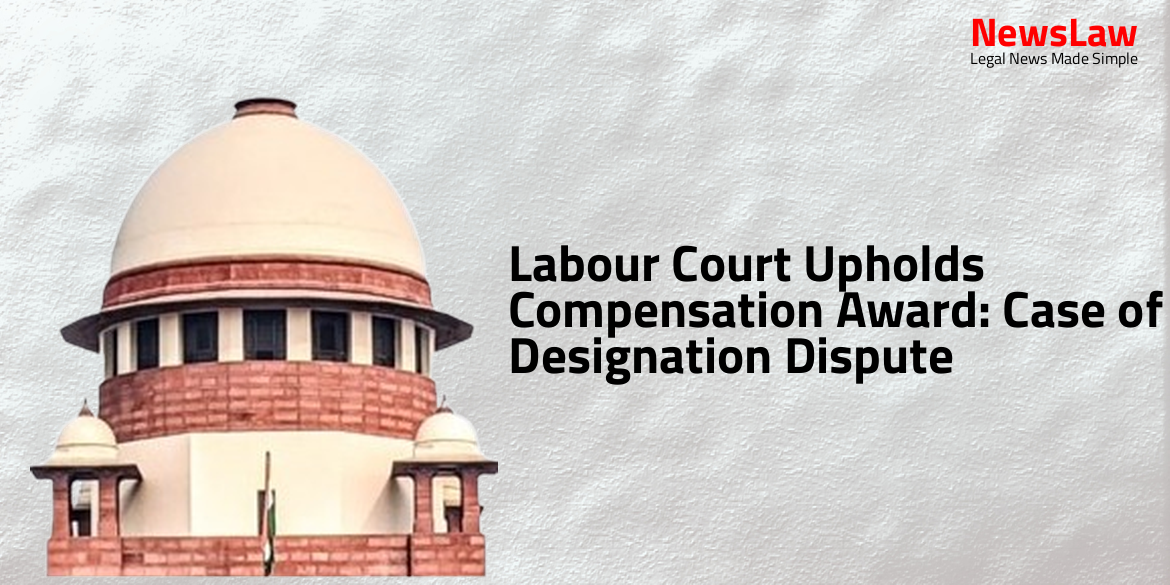In the case of Jindal Drugs Limited vs. Revenue Department, the Supreme Court of India delved into the issue of whether the labelling activity conducted by the respondent qualifies as manufacture. The core question revolved around the interpretation of Note 3 to Chapter 18 of the Central Excise Tariff Act. Stay tuned to learn more about this significant legal battle.
Facts
- The factory at Jammu manufactures cocoa butter and cocoa powder.
- Labelling at Taloja did not amount to manufacture.
- Jammu unit entitled to refund of duty paid, Taloja unit entitled to cenvat credit of duty paid by Jammu unit.
- Allegation of wrongful cenvat credit availed amounting to Rs. 23,02,53,752.00 for the period from June 2008 to July 2012.
- CESTAT held no suppression by Jindal Drugs Limited, hence extended period of limitation not available to the department.
- Note 3 to Chapter 18 of Central Excise Tariff Act deemed labelling as manufacture.
- Jindal Drugs Limited eligible for cenvat credit and rebate on exported goods.
- Factory at Taloja only put labels on goods from Jammu and imported goods.
- Appellant held irregular credit availed of liable for recovery.
- The erroneous refund of Rs. 13,22,60,368.00 was held liable to be recovered, with the respondent also liable to pay interest under Section 11AB/Section 11AA of the Central Excise Act.
- There was a difference of opinion between the Judicial Member and the Technical Member in terms of the labelling activity by the respondent.
- The Third Member, after hearing the matter, opined that the labelling activity amounted to manufacture as per Note 3 to Chapter 18 of the Central Excise Tariff Act.
- The Third Member held that both the Jammu and Taloja units of the respondent were separate entities.
- The appeal filed by the respondent was allowed, with a penalty imposed under Rule 15(2) of Cenvat Credit Rules read with Section 11AC of the Central Excise Act.
Also Read: M/s. Mount Shivalik Industries Limited vs. The National Company Law Tribunal
Issue
- The core issue to be considered is whether the activity of labelling amounts to manufacture.
- The judgement will focus on determining if the labelling activity conducted by the respondent meets the criteria of manufacturing.
Also Read: Analysis of Supreme Court’s Judgment in Yash Tuteja & Anr. v. Union of India on PMLA Complaints
Arguments
- Appellant filed a rejoinder affidavit reiterating the grounds in the appeal.
- CESTAT was divided on whether the activity constituted manufacture.
- Learned counsel justified the order in original based on this division of opinion.
- The activity of putting labels on cartons at the Taloja unit was the main point of contention.
- The majority view was that this activity did amount to manufacture.
- Note 3 of Chapter 18 was heavily relied upon by the counsel for the appellant.
- The Technical Member disagreed with the majority view and provided reasons.
- The third member erred in concurring with the majority view.
- Mr. V. Sridharan, learned senior counsel, referred to Note 3 to Chapter 18 of the Central Excise Tariff Act.
- He highlighted the change from ‘and’ to ‘or’ in the amendment, indicating labelling or re-labelling as manufacturing activity.
- He supported the CESTAT decision and urged for dismissal of the appeal.
Also Read: Meher vs. University Grants Commission: Legal Battle for Appointee Continuity
Analysis
- The issue revolved around the interpretation of the term ‘manufacture’ as per Note 3 to Chapter 18 of the Central Excise Tariff Act.
- The amendment to Note 3 post 01.03.2008 replaced ‘and’ with ‘or’ between the expressions ‘labelling or re-labelling of containers’ and ‘repacking from bulk packs to retail packs.’
- Prior to the amendment, the legislative intent was that either labelling or re-labelling of containers and repacking from bulk packs to retail packs would amount to manufacture.
- Post-amendment, Note 3 now contemplates three separate processes: labelling or re-labelling of containers, repacking from bulk packs to retail packs, and adopting any other treatment to render the product marketable to the consumer.
- The Central Excise Act defined ‘manufacture’ as any process specified in Section or Chapter notes of the First Schedule to the Central Excise Tariff Act, including packing or repacking in a unit container, labelling or re-labelling of containers, or adopting any other treatment to make the product marketable.
- The composite activity of labelling or re-labelling of containers and repacking from bulk packs to retail packs has been split into two independent processes post-amendment.
- The definition of ‘manufacture’ in the Central Excise Act was crucial in determining the activity carried out by the respondent at its Taloja unit.
- Any process listed in Note 3 to Chapter 18 of the Central Excise Tariff Act would qualify as ‘manufacture’.
- According to Note 3 to Chapter 18, the process of re-labeling falls within the definition of ‘manufacture’.
- The view taken by CESTAT was deemed correct as all other aspects were interrelated with the core issue.
- The impugned order of CESTAT dated 16.04.2015 was affirmed and the appeal by the revenue was dismissed.
Decision
- No order as to costs in the case
- Civil Appeal Nos. 788-790 of 2022 dismissed
Case Title: COMMISSIONER OF CENTRAL EXCISE BELAPUR Vs. JINDAL DRUGS LTD. (2024 INSC 354)
Case Number: C.A. No.-001121-001121 – 2016



